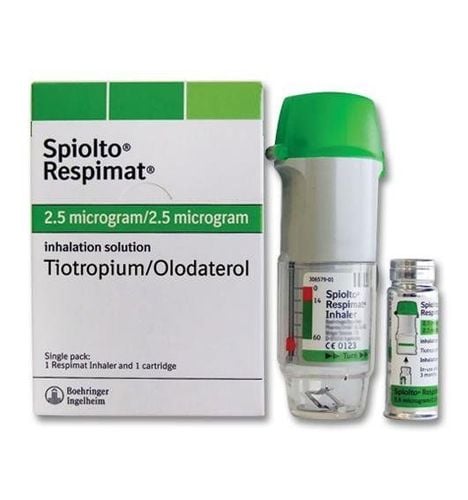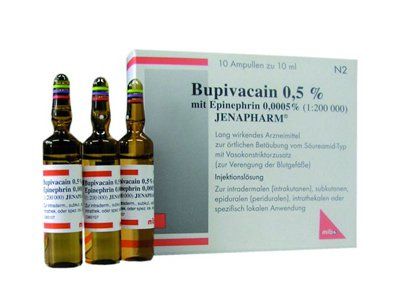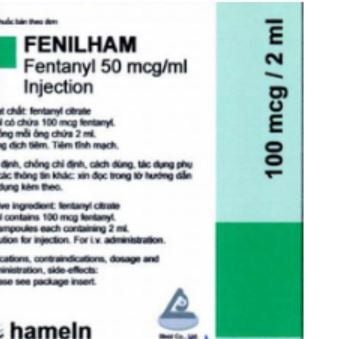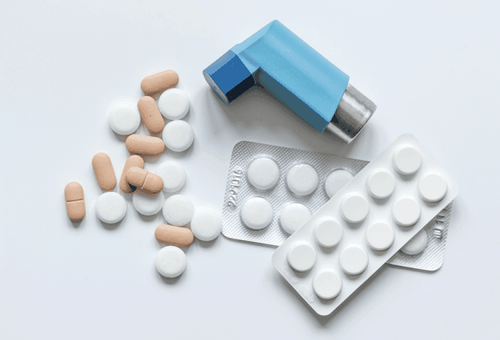This is an automatically translated article.
The article is professionally consulted by Master, Doctor Ta Quang Hung - Department of General Surgery - Vinmec Da Nang International General Hospital.
1. Overview of anesthesia for people with respiratory disease
Patients with lung disease have reduced lung volumes but can still maintain normal inspiratory volumes. During surgery, the patient needs to be anesthetized, and pulmonary embolism or the consequences of pulmonary disease can be dangerous for the patient.Pulmonary embolism at surgery presents as a sudden unexplained drop in blood pressure accompanied by hypoxemia and bronchospasm. For CO2 reduction, exhalation is suggestive but not specific.
Consequences of pre-existing lung disease on respiratory function during anesthesia and surgery can lead to worsening of respiratory conditions and possibly complications later in life. The omission or failure to determine the patient's respiratory status before surgery is an important factor leading to the failure to predict complications during surgery and after surgery.

2. Effects of anesthesia and surgery on lung function
General anesthesia can reduce lung volume and cause lung collapse. There are many anesthetic and analgesic drugs that can inhibit breathing, depriving the blood of oxygen and increasing CO2 levels. Usually after surgery, atelectasis and hypoxic blood are the most common complications, especially in patients with pre-existing respiratory diseases. In addition, lung complications can also be caused by the patient's too much pain after surgery, so it limits the coughing movements and the expansion of the chest when exhaling.Variation in respiratory rate and blood gas values General anesthesia in the supine position may result in a decrease in functional residual capacity. Atelectasis can occur when the tidal volume falls below the volume at which the airways close. The supine position also restricts diaphragmatic mobility and reduces functional residual capacity.
Particular attention should be paid to the respiratory depressive effects of anesthetics and analgesics in patients with obstructive disease and sleep apnea.
Interactions of surgery Respiratory system function depends on the site of surgery. The likelihood that the patient will cough and take deep breaths will decrease after abdominal surgery compared to peripheral surgery.
This is due to decreased diaphragmatic activity and patient pain. The tidal capacity is greatly reduced, up to 75% after upper abdominal surgery and about 50% after lower abdominal surgery or thoracic surgery. Peripheral surgery usually has little effect on tidal volume and respiratory secretion.
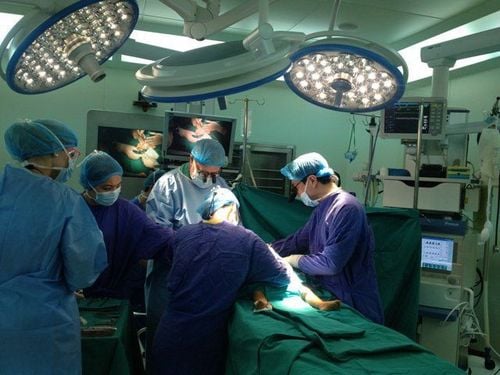
Anesthesia technique Neurosurgery, also known as regional anesthesia, is the best choice for patients with special lung diseases during peripheral surgery such as eye surgery or surgery on other areas of the body. spend.
Spinal or epidural anesthesia is also a reasonable choice during surgery on the lower abdomen or lower extremities. If the patient has severe COPD and is still dependent on the properties of breathing, especially the intercostal muscles when participating in inhalation movements or the abdominal muscles during exhalation movements.
Spinal anesthesia can also be detrimental if its blockade reduces the FRC, reduces the patient's ability to cough and produce sputum, or causes respiratory distress.
The combination of epidural and general anesthesia can also control the respiratory system, provide adequate ventilation, and prevent hypoxemia and complications such as atelectasis. Prolonged peripheral surgery is well anesthetized in cases of general anesthesia or a combination of general anesthesia and epidural anesthesia.
General anesthesia is often combined with epidural techniques and is indicated in surgery in the upper abdomen and surgery in the chest area.
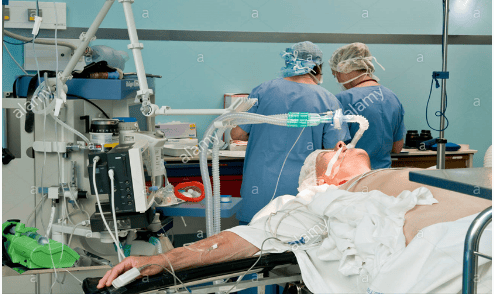
Auto-PEEP should be avoided during general anesthesia with an endotracheal tube in patients with airway reactivity or in patients with high pulmonary stress, especially in patients with severe COPD. Auto-PEEP can cause a drop in blood pressure and decrease in cardiac output, which often occurs when the patient does not have enough time to exhale so that the lungs have not collapsed completely.
In addition, Laryngeal Mast is also rarely used in general anesthesia in patients with lung disease because it has many disadvantages such as increased risk of bronchospasm and is not used in patients with airways. jittery.
Vinmec International General Hospital is one of the hospitals that not only ensures professional quality with a team of leading medical doctors, modern equipment and technology, but also stands out for its examination and consultation services. comprehensive and professional medical consultation and treatment; civilized, polite, safe and sterile medical examination and treatment space.
Master. Doctor Ta Quang Hung has over 10 years of experience in teaching and practicing in the field of Anesthesia and Resuscitation. Currently, he is an Anesthesiologist, General Surgery Department - Vinmec International Hospital Da Nang.
Please dial HOTLINE for more information or register for an appointment HERE. Download MyVinmec app to make appointments faster and to manage your bookings easily.







